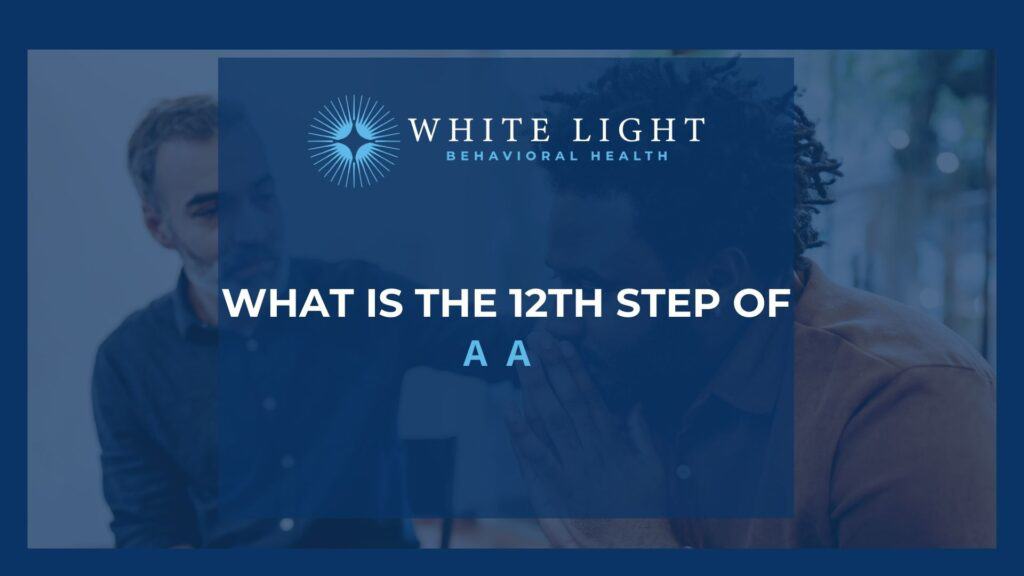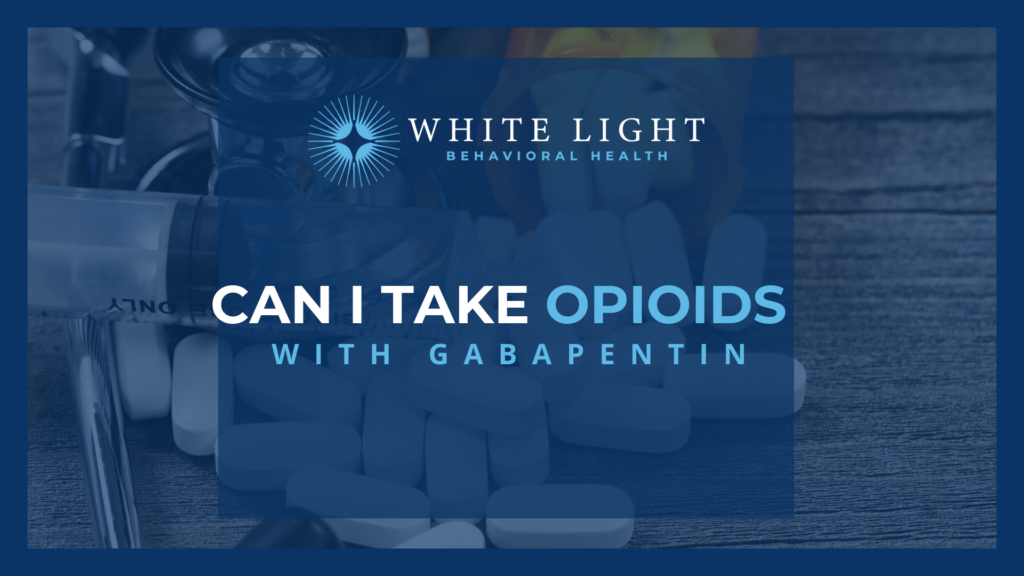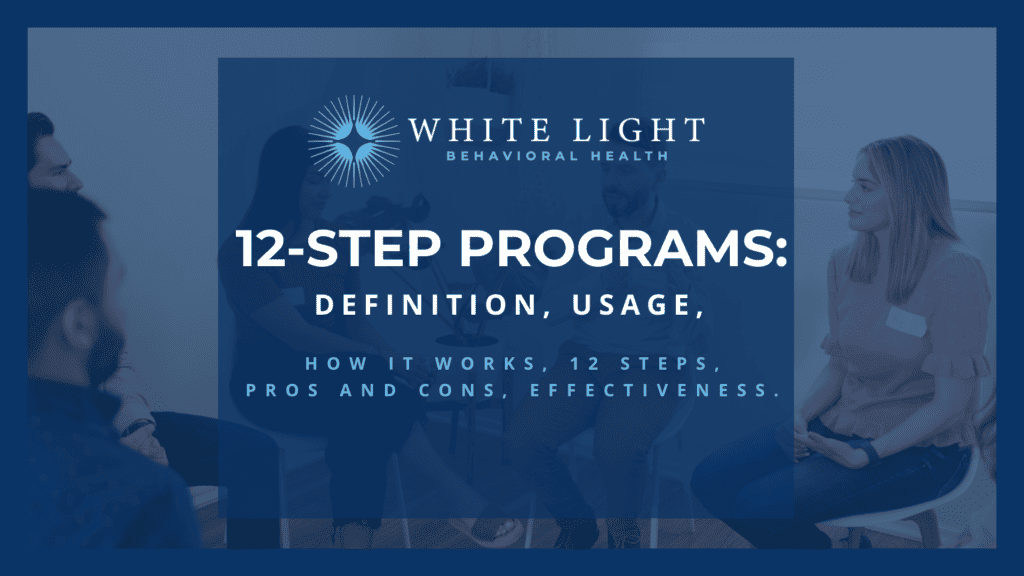The Transformative Power of the Twelfth Step
The Twelve Steps of Recovery stands as the cornerstone of the Alcoholics Anonymous (AA) recovery program that has likely saved countless lives since the program’s founding in 1935. Without the creation of the Twelve Steps to guide people through the recovery process, it’s likely the program would never have survived for so many years.
At White Light Behavioral Health, we work every day with addiction sufferers who seem willing to fight for recovery but fear they can’t do it alone. In rehab, they have therapists and other clients upon whom they can rely. Once they leave rehab, there are other means of moral and emotional support to guide them. The AA program is one of those other ways of getting that moral and emotional support.
What Are the Twelve Steps of Recovery?
The Twelve Steps of Recovery is a sequential list of things that members of AA believe alcoholics should do if they want to obtain and maintain sobriety. They further believe that the Twelve Steps must be done in order while working with a guide or sponsor. A sponsor is typically another recovering alcoholic who has achieved sobriety and successfully worked the Twelve Steps themselves.
To get a better idea of why the Twelve Steps should be followed in order, you should imagine you are standing at the base of a stairwell that has 12 steps. The safest way to reach the top (recovery) is to navigate the stairs one step at a time. You can try to head up two steps at a time, but your stability would likely be compromised. According to AA’s ideology, the whole point of recovery is to restore stability to one’s life.
Four Basic Concepts Behind the Twelve Steps
When viewed in its entirety, it is easy to see the ideology behind the Twelve Steps can be broken down into the following four basic concepts:
- The alcoholic must have the willingness to admit they are powerless over alcohol and to seek spiritual guidance from a “higher power.”
- The alcoholic must be willing to admit their addictive behaviors harmed themselves and others and must be further willing to take responsibility for that harm.
- After taking responsibility for the harm they have caused, they must be willing to try to make amends to their victims whenever it’s possible to do so without causing further harm.
- As their recovery progresses, they must be willing to commit to staying in touch with their higher power and taking the message of recovery to other suffering alcoholics.
What Is the 12th Step of AA?
From this point going forward, we will focus on the 12th Step. Without AA members actively embracing the 12th Step, the AA ideology would falter. It would lie in darkness out of the reach of the alcohol addiction sufferers who need the program most.
The 12th Step is as follows: “Having had a spiritual awakening as the result of these Steps, we tried to carry this message to alcoholics, and to practice these principles in all our affairs.”
The term “spiritual awakening” is used a lot in AA literature. AA is not a religious program. When the term “God” is used, it’s a reference to a higher power. A higher power is any personal spiritual entity from whom addiction sufferers can draw strength and wisdom. Addiction sufferers need help with strength and wisdom because they are fallible and vulnerable.
It’s important to point out that it takes time, effort, and commitment to get through the first 11 steps. We like to call that the healing process. What a shame it would be if recovering AA members did all of that hard work only to ignore the benefits they should have derived from the healing process. The 12th Step is a proclamation of what they should do to celebrate the recovery afforded them by the work they have done.
If you read the 12th Step closely, you will see there is a “you” section and a “me” section. Let’s delve deeper into the meaning of each section.
The You Part
The “you,” or “carry this message to alcoholics,” part is a call to arms. AA is a fellowship of men, women, and even children who have two powerful things in common. First, they suffer from the disease of alcohol addiction, a disease for which there is no cure. Second, they want and need help recovering from this horrible disease.
The “you” part of the 12th Step serves as a reminder that recovering alcoholics are needed to help others. Those people who have sobriety know how to secure and maintain sobriety. That’s the exact kind of help and knowledge that suffering alcoholics who have not yet recovered need.
Helping others is the greatest benefit of AA membership. That’s why the 12th Step makes the call to arms. There is nothing more powerful and fulfilling than helping others, especially people who are suffering from any kind of illness.
Here’s the kicker. All an AA member needs to do at a minimum to be helpful is share their story and experiences with their recovery journey with others. By doing that, they automatically send a message to new AA members. The message is, “If I can recover despite the horrors alcoholism brought to my life, recovery is possible for you as well.”
The “you” part matters because someone needs to be there to tell you that recovery is possible no matter what.
The Me Part
As for the “me,” or “practice these principles in all our affairs,” part, it is intended to serve as a reminder that recovery is an ongoing process.
Remember, alcoholism is a disease for which there is no cure. But, AA is available to help alcoholics whenever they need it.
By the time an AA member completes all Twelve Steps, they have cause to be proud. At the same time, they still have work to do. The end of the 12th Step states clearly they will need to remain diligent about sobriety.
If you ever get the opportunity to talk to an AA member with 20+ years of sobriety, ask them how many times they have worked the steps. They will likely respond they have done so many times either individually or as a sponsor helping others work the steps. Helping others work the steps is a good way to freshen up the commitment to your sobriety while serving others.
Also, your sponsor or a longtime recovering alcoholic will tell you that completing the 12th Step is both an end and a beginning. It’s the end of cycling through the Twelve Steps one time, prompting the opportunity to do it again as often as possible.
The Benefits Associated With Working the 12th Step
Working the first 11 steps requires a lot of hard work. The AA member is charged with digging deep into their mind, heart, and soul for answers. At times, it can be painful when their self-awareness is brought to the forefront. However, the pain is both useful and necessary to dig out the demons.
The rewards of working hard on the steps and enduring the pain come in the 12th Step. It’s the step where reflection ends and recovery can begin in earnest.
Some of the other potential benefits associated with working the 12th Step could include the following:
- The 12th Step serves as the motivation to reach out to those suffering from addiction who have yet to find the rooms of AA.
- Reaching out to others as part of Step 12 offers the opportunity to remember the bad things about addiction and how far one has come from being addicted.
- Helping others brings a sense of pride, purpose, accomplishment, and fulfillment.
- Finishing the 12th Step often brings admiration and respect from AA members who have done the same and members who have not yet finished working the steps.
Practicing the 12th Step
We have already addressed why the 12th Step is important to the recovery process. Now, we’ll talk about how those addicted can practice the 12th Step.
Assuming you will eventually get to the 12th Step, here are a few ways to actively practice what the step preaches:
- First and foremost, hold yourself accountable to both you and other AA members by showing up to as many meetings as possible.
- Keep a journal that includes a daily personal inventory of your thoughts, feelings, and actions.
- Openly share your story in meetings for the benefit of new members.
- After you have completed the Twelve Steps one time, volunteer your services to others as a sponsor.
- Volunteer to spend some time manning the AA hotline.
- Volunteer to chair meetings put out free AA literature, and perform other helpful tasks.
- Offer to bring someone to their first AA meeting in a show of moral support.
- For the benefit of friends, family, and co-workers, live your life based on the AA principles of forgiveness, accountability, empathy, and surrender.
- Speak to your higher power often.
Conclusion
At White Light Behavioral Health, we offer a full range of addiction treatment services to people who are suffering from alcohol addiction. That includes detox services and a wide variety of alcohol addiction treatment modalities.
After treatment, we do offer information related to aftercare resources. Also, we highly recommend participation in the AA program. We feel great pride when our alumni finish that 12th Step.
If you have any questions or need help, please contact us as soon as you can. We will be ready to help.
How does the 12th Step of AA contribute to addiction recovery?
The 12th Step of Alcoholics Anonymous (AA) is integral to the recovery process as it emphasizes service to others as a means of maintaining sobriety. By helping other alcoholics achieve sobriety, individuals reinforce their commitment to recovery and gain a sense of purpose and fulfillment.
Can the 12th Step of AA be adapted to different cultures or belief systems?
Yes, the principles of the 12th Step, such as offering support to others struggling with addiction, can be adapted to various cultural and belief systems. While AA itself has spiritual undertones, individuals from diverse backgrounds can interpret the step in ways that align with their personal beliefs and values.
What types of service work are involved in the 12th Step of AA?
Service work in the context of the 12th Step can involve various activities, such as sponsoring other individuals in their recovery journey, participating in group meetings, volunteering for community service projects, or providing support and guidance to newcomers in the program.
How does sponsorship work concerning the 12th Step of AA?
Sponsorship is a key aspect of the 12th Step, where individuals who have achieved sobriety guide and support newcomers through the recovery process. Sponsors share their own experiences, offer advice and encouragement, and help newcomers navigate the challenges of maintaining sobriety.
What is the typical duration of a 12-step program, and how does it vary?
The duration of a 12-step program can vary depending on individual circumstances, such as the severity of addiction, level of commitment, and progress through the steps. While some individuals may complete the program in a matter of months, others may take longer to fully integrate the principles of the steps into their lives.
What role does spiritual growth play in the 12th Step of AA?
Spiritual growth is emphasized in the 12th Step as individuals are encouraged to deepen their connection with a higher power of their understanding. This spiritual aspect of the step often involves introspection, prayer, meditation, and the development of a personal belief system that supports sobriety and personal growth.
How does practicing the 12th Step of AA contribute to personal development?
Engaging in the 12th Step fosters personal development by encouraging individuals to step outside of themselves and focus on helping others. Through service work, individuals gain a sense of empathy, compassion, and selflessness, which are essential qualities for maintaining sobriety and building fulfilling relationships.
What resources are available for those seeking assistance with the 12 steps in Ohio?
In Ohio, individuals seeking assistance with the 12 steps of AA can find support through various resources, including local AA meetings, online forums, helplines, and community organizations dedicated to addiction recovery. These resources provide access to information, guidance, and support for individuals navigating the recovery process.
How can I find a local AA meeting in Ohio?
To find a local AA meeting in Ohio, individuals can visit the official website of Alcoholics Anonymous (AA) and use the meeting finder tool. Additionally, contacting the local intergroup or central office in Ohio can provide information about meeting schedules, locations, and other resources available for individuals seeking support with their recovery journey.

Share This Post



